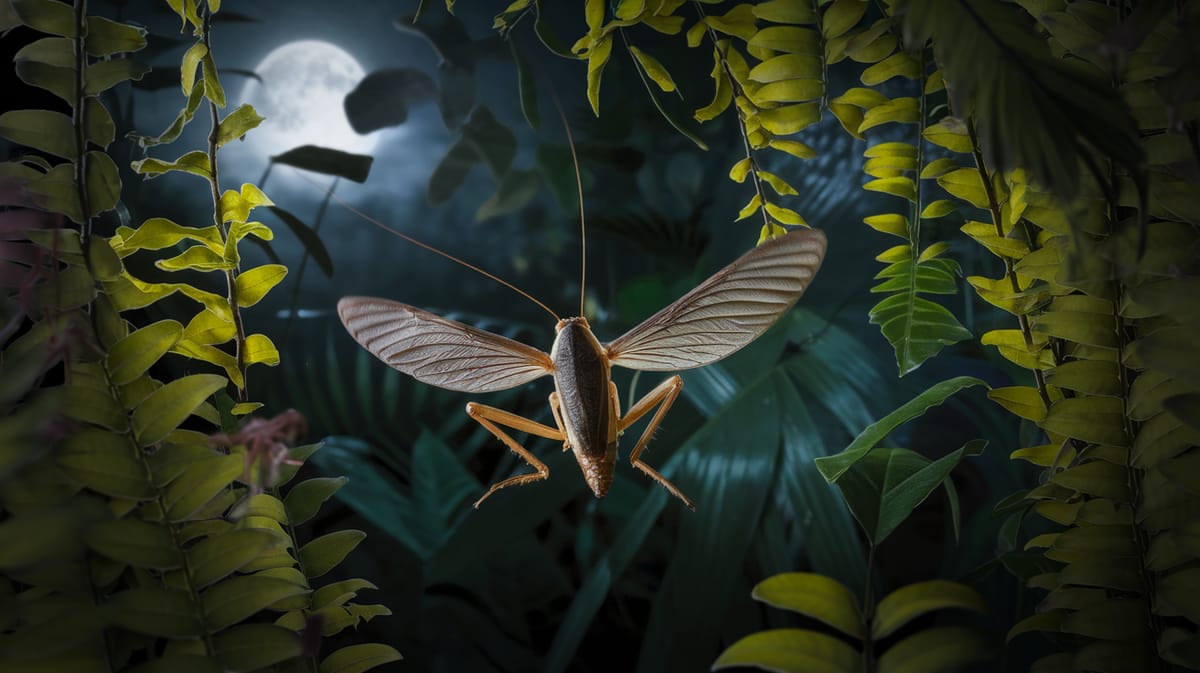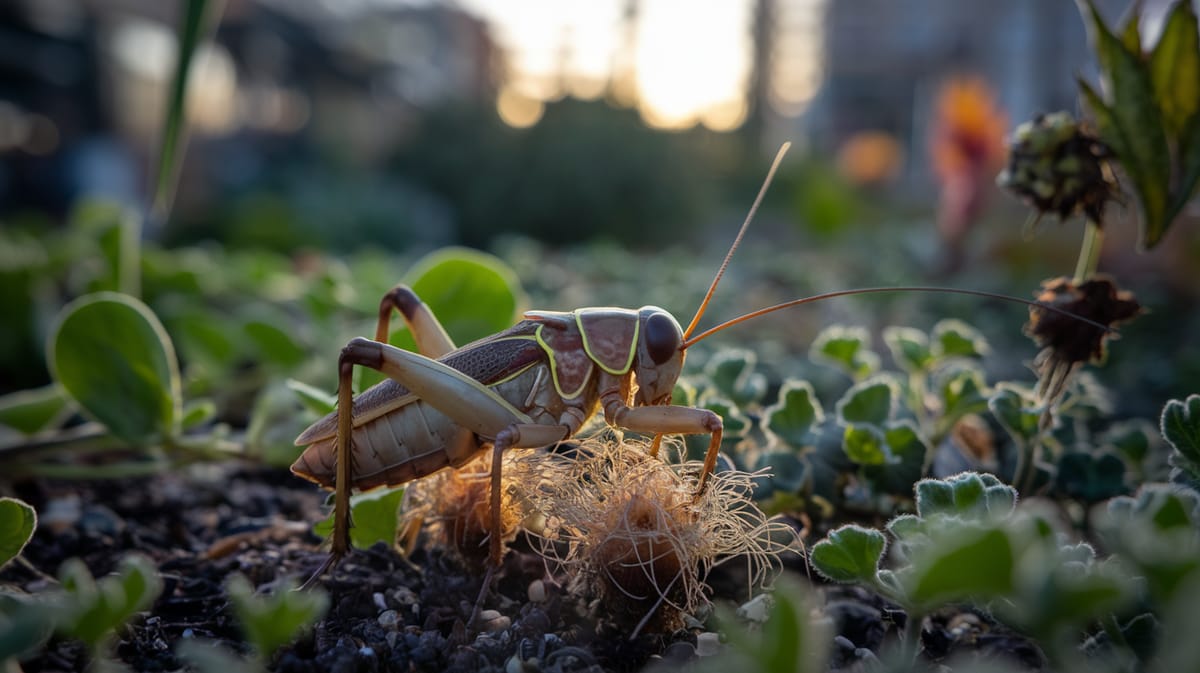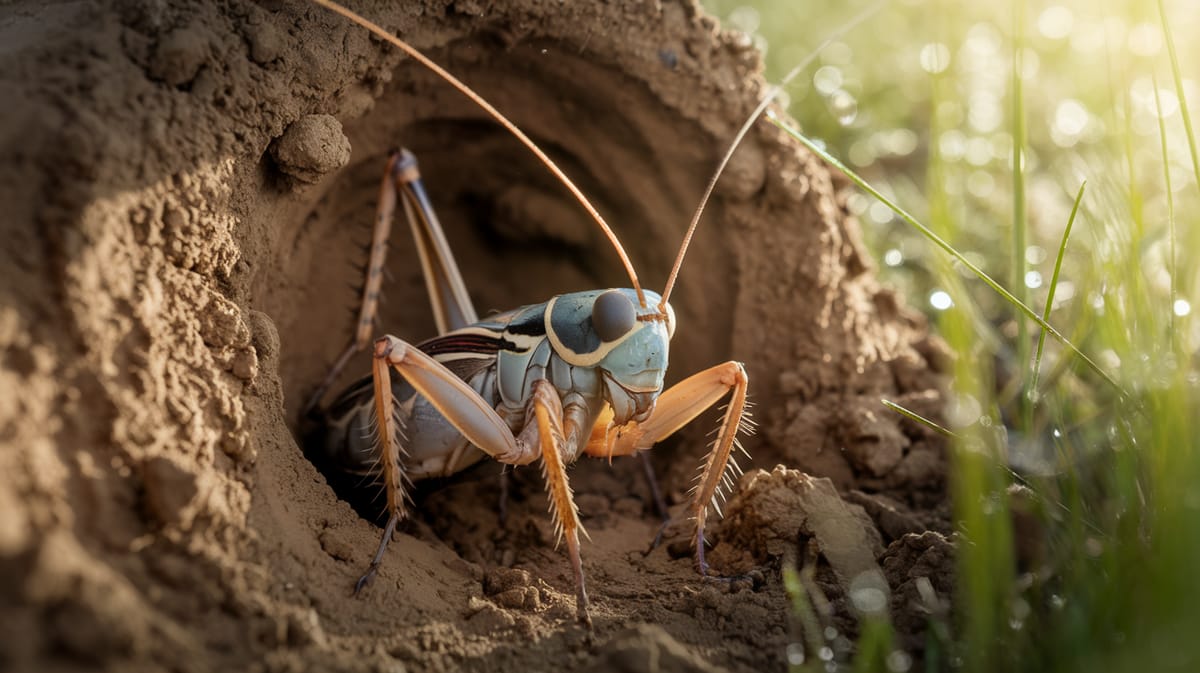Common Mole Cricket
With spade-like forelimbs, the Common Mole Cricket excels at digging underground tunnels, providing aeration to soil. Its nocturnal serenades are a vital part of many ecosystems.

Key Insights at a Glance
Did You Know?
Taxonomy & Classification
Common Mole Crickets are skilled burrowers with specialized forelimbs, adapted for life underground, reflecting their evolutionary development within the Orthoptera order. Let's understand the evolutionary journey and classification of these remarkable decomposers, herbivores.
Global Presence
Mole crickets inhabit all continents except Antarctica, showcasing their adaptability to diverse ecosystems.
Evolutionary Adaptations
These insects evolved approximately 65 million years ago, developing unique digging adaptations to thrive in subterranean environments.
Lifecycle and Growth
A remarkable journey of transformation from Egg to Adult.
Egg
Eggs are laid in underground chambers where they develop safely, shielded from external threats and environmental changes.
Nymph
Nymphs resemble small adults and undergo several molts while gradually developing wings and adult characteristics.
Adult
Adults possess full wings, perform tunneling activities, and participate in mating to propagate the next generation.
Dietary Habits
A nocturnal forager with specialized burrowing skills, this insect primarily consumes plant roots, underground stems, and organic matter.
| DIET TYPE | DESCRIPTION |
|---|---|
| Primary Diet | Primarily feeds on plant roots and tubers, causing significant damage to agricultural crops. |
| Secondary Diet | Supplements diet with small soil-dwelling insects and larvae, aiding in pest population control. |
| Occasional | Occasionally scavenges decaying plant material and organic debris when other food sources are scarce. |

Behaviour and Adaptations
Discover the fascinating adaptations that equip the Common Mole Cricket for its subterranean lifestyle.
Burrowing Expertise
Strong forelimbs enable efficient tunneling through soil for shelter and food.
Acoustic Communication
Males produce loud calls to attract mates from burrows.
Nocturnal Activity
Primarily active at night, reducing predation risks and conserving moisture.
Ecosystem Impact
Common Mole Crickets play a vital role in sustaining ecological health through various ecosystem contributions.
Soil Aeration
By burrowing, they enhance soil structure and allow better water and air flow.
Nutrient Cycling
Their digging helps decompose organic matter, enriching soil fertility.
Prey for Predators
Serve as a food source for birds and small mammals, supporting higher trophic levels.
Conservation Challenges
Understanding and addressing the major threats to Common Mole Cricket populations.
Habitat Loss
Urbanization and agriculture reduce natural habitats for mole crickets.
Pesticide Use
Chemical applications in farming harm mole cricket populations.
Climate Change
Altered weather patterns disrupt breeding and survival.
Frequently Asked Questions
How long do Common Mole Cricket live?
Common Mole Crickets typically have a lifespan of about one year. They go through several life stages, including egg, nymph, and adult. Adult mole crickets emerge in spring and lay eggs before dying, completing their life cycle within a year.
What do Common Mole Cricket eat?
Common Mole Crickets primarily feed on plant roots, stems, and leaves. They are known to damage lawns and gardens by burrowing underground, which can disrupt plant growth. They may also consume small insects and other organic matter found in the soil.
Are Common Mole Cricket poisonous?
Common Mole Crickets are not poisonous to humans or pets. They are considered pests due to their feeding habits, which can damage crops and lawns. Despite their large size and strong legs, they do not pose a threat through venom or toxins.
Are Common Mole Cricket endangered?
Common Mole Crickets are not classified as endangered. They are widespread and found in various regions across the world. While their populations can fluctuate due to environmental factors, they are generally not at risk of extinction.
What do Common Mole Cricket symbolize?
In some cultures, mole crickets symbolize good luck and prosperity. Their burrowing nature is seen as a sign of hard work and perseverance. However, in agricultural contexts, they may represent pests and the need for vigilance in crop management.
Do Common Mole Cricket bite?
Common Mole Crickets do not bite humans. They have strong forelegs adapted for digging, not for biting. While they can cause damage to plants, they are harmless to people and pets in terms of biting or stinging.
What color are Common Mole Cricket?
Common Mole Crickets are usually brown or gray. Their coloration helps them blend into the soil, providing camouflage from predators. This earthy color palette is typical for insects that spend a significant amount of time underground.
Does a Common Mole Cricket have wings?
Yes, adult Common Mole Crickets have wings. They possess two pairs of wings, with the front pair being more rigid. Despite having wings, they are not strong fliers and typically use them for short flights, mainly during mating season.
What does a Common Mole Cricket look like?
Common Mole Crickets have a stout, cylindrical body, measuring about 1.2 to 2 inches long. They have large, spade-like forelegs adapted for digging, a pair of long antennae, and wings. Their bodies are typically brown or gray, aiding in camouflage.
Is a Common Mole Cricket an insect?
Yes, the Common Mole Cricket is an insect. It belongs to the order Orthoptera, which includes grasshoppers and crickets. Like other insects, it has a three-part body structure: head, thorax, and abdomen, along with six legs and two antennae.
Related Insects
Discover insects with similar characteristics to Common Mole Cricket - including shared habitats, diets, and taxonomic classifications
Share this profile
Help others discover Common Mole Cricket
